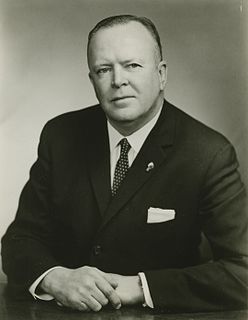A Quote by Michael Hudson
The problems of 2008 were never cured. The Federal Reserve's solution to the crisis was to lend the economy enough money to borrow its way out of debt. It thought that if it could subsidize banks lending homeowners enough money to buy houses from people who are defaulting, then the bank balance sheets would end up okay.
Related Quotes
If two parties, instead of being a bank and an individual, were an individual and an individual, they could not inflate the circulating medium by a loan transaction, for the simple reason that the lender could not lend what he didn't have, as banks can do. Only commercial banks and trust companies can lend money that they manufacture by lending it.
For many people, the mortgages they took out before 2008 are so high that they would be better off walking away from their houses. That is called "jingle mail," returning the keys to the bank and saying, "You can have the house. I can buy the house next door that's just like this for 20% less, so I'm going to save money and switch." That's what someone like Donald Trump or a real estate investor would do. But the banks are trying to convince the mortgage debtors, the homeowners, not to act in their own self-interest.
People have to pay so much money to the banks that they don't have enough money to buy the goods and services they produce. So there's not much new investment, there's not new employment (except minimum-wage "service" jobs), markets are shrinking, and people are defaulting. So many companies can't pay their banks.
People tend to think that paying a debt is like going out and buying a car, buying more food or buying more clothes. But it really isn't. When you pay a debt to the bank, the banks use this money to lend out to somebody else or to yourself. The interest charges to carry this debt go up and up as debt grows.
If all the bank loans were paid, no one could have a bank deposit, and there would not be a dollar of coin or currency in circulation. This is a staggering thought. We are completely dependent on the commercial banks. Someone has to borrow every dollar we have in circulation, cash, or credit. If the banks create ample synthetic money we are prosperous; if not, we starve. We are absolutely without a permanent money system. When one gets a complete grasp of the picture, the tragic absurdity of our hopeless situation is almost incredible - but there it is.
So: if the chronic inflation undergone by Americans, and in almost every other country, is caused by the continuing creation of new money, and if in each country its governmental "Central Bank" (in the United States, the Federal Reserve) is the sole monopoly source and creator of all money, who then is responsible for the blight of inflation? Who except the very institution that is solely empowered to create money, that is, the Fed (and the Bank of England, and the Bank of Italy, and other central banks) itself?
What do the 5%, or the 1% actually use their money for? They lend it back to the economy at large, they load it down with debt. They make their money by lending to the bottom 95%, or the bottom 99%. When you give them more after-tax income, it enables them to buy even more control of government, even more control of election campaigns. They're not going to spend this money back into the goods-and-services economy.
There's no automatic mechanism in a market system that reconciles the desire to save and the desire to invest. And therefore, the government has to sort of do something or the Federal Reserve, the Fed, or the Central Bank, or whatever, it has to intervene. It has to create enough investment for the economy not to suffer from a fall in aggregate demand. So, if you don't have a balance within the market system itself, then you need an external balance and that's what I think Keynes believed.





























